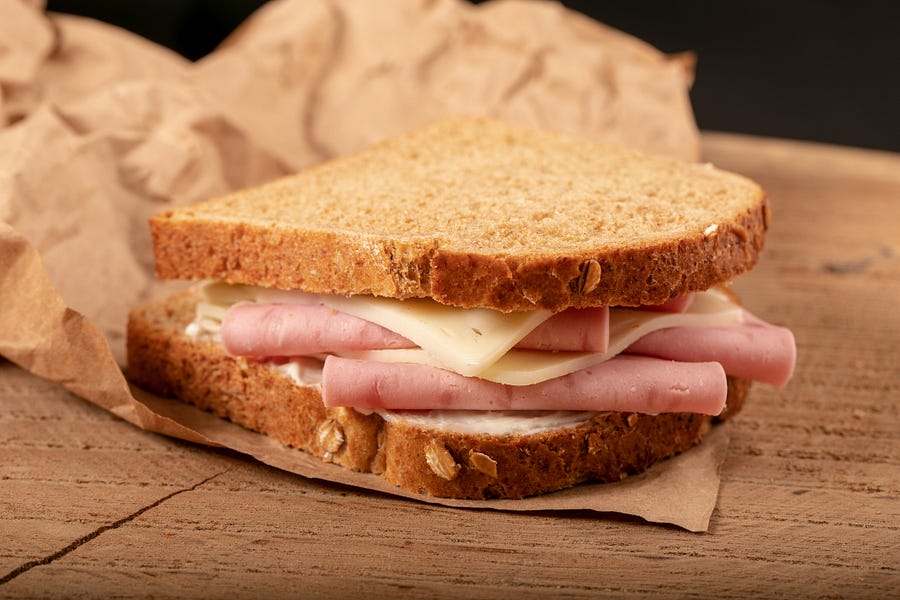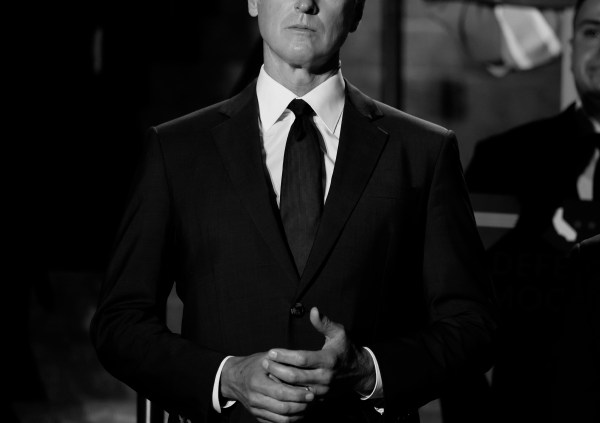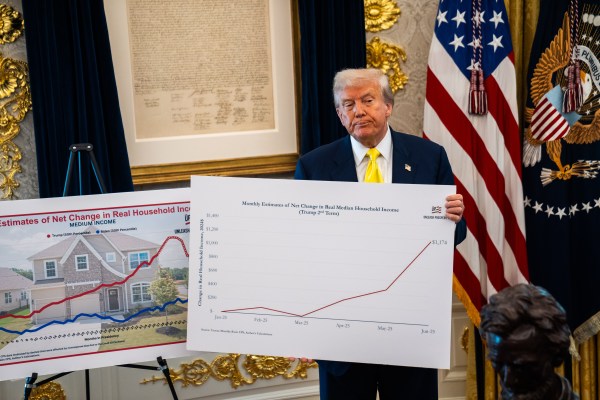Welcome to the first installment of Economics for English Majors. In the future it (probably) will be part of my weekly newsletter, Wanderland, which will make its debut imminently (and, with any luck, eminently.) Like many of my Dispatch colleagues, I found Henry Hazlitt’s famous Economics in One Lesson eye-opening, and I am hoping to offer Dispatch readers something along those lines—but, sometimes, you want more than one lesson.
I was, for a minute, an economics major as an undergraduate, until one of my professors did me the great favor of talking me out of that. The conversation went something like this:
“Do you know what you do with an undergraduate degree in economics, Williamson?”
“Not really. I hadn’t thought that far ahead.”
“You get a Ph.D. in economics, dummy. And a Ph.D. in economics is basically a Ph.D. in applied mathematics. Math, Williamson. Lots of it. Oodles of it. Oodles and scads. Math all day and all night. Does that sound like fun to you?”
“Not especially.”
“Does that sound like the thing to which your talents and interests are best suited?”
“I think I need to visit either the registrar or the mental-health center.”
I changed my major for the fifth or sixth time, whatever it was. I chose English because while I might not have the math chops for an economics major I had too much self-respect to major in journalism. I suppose I could have chosen what the University of Texas forthrightly calls “government,” having heroically resisted at least the formal pretense that there exists such a thing as “political science.”
I’m better at writing about economic ideas for a general audience than I am at formal economic scholarship. Another way of saying that is that writing rather than economics is where I find my comparative advantage.
Comparative advantage is one of the most misunderstood concepts in economics.
We begin, inevitably, with one of those desert-island scenarios loved by economists. Our desert island has two inhabitants and two occupations: Bob, who is older and not in great shape, and Steve, who is younger and fitter. Bob can gather six coconuts in an hour or catch three fish. Steve, the more energetic one, can gather 12 coconuts in an hour or catch 18 fish. So, where is Bob’s comparative advantage? Some of you will be tempted to answer: “Bob doesn’t have a comparative advantage—Steve is much better at both tasks.” Steve may have an absolute advantage in both activities, but that isn’t what we are talking about. As it happens, everybody has a comparative advantage, which is explained by a more familiar economic concept: opportunity cost.
One way of defining comparative advantage is how they do it in the Oxford English Dictionary: “the ability of an individual or group to carry out a particular economic activity (such as making a specific product) more efficiently than another activity.” Another way, more common when talking about trade, is, as they put it over at Investopedia: “an economy’s ability to produce a particular good or service at a lower opportunity cost than its trading partners.”
Time is a limited resource. Neither Bob nor Steve can work an infinite number of hours to satisfy his needs. Let’s say the Desert Island Department of Labor imposes a 40-hour work week. If Bob and Steve each divides his time evenly between coconut-gathering and fishing, then the GIP (gross island output) would be: 360 coconuts (120 from Bob gathering six coconuts an hour for 20 hours and 240 from Steve gathering 12 an hour for 20 hours) per week and 420 fish (60 from Bob and 360 from Steve catching 18 an hour for 20 hours). But what if each producer invested a little more time in what he did best? If Bob cut his fishing down to 10 hours a week and upped his coconut-gathering to 30 hours, then he would produce 180 coconuts and 30 fish. If Steve responded by cutting his coconut-gathering time to 15 hours and upping his fishing time to 25 hours, then the island economy would produce the same 360 coconuts (180 from Bob and 180 from Steve) but 480 fish (30 from Bob catching three an hour for 10 hours and 450 from Steve catching 18 an hour for 25 hours). Same workers, same hours of work—much more food to go around.
The opportunity cost of shifting some of Bob’s time from fishing to coconut-gathering is relatively low, meaning that Steve can make up the loss in coconuts and still have time left over to invest in additional fishing. Now, this scenario wouldn’t come out as nicely if the comparative-advantage math worked out exactly the same way for both Bob and Steve, but, here’s the thing: In an economy with millions or billions of workers and entrepreneurs, that isn’t a problem. In this, if in nothing else, the cliché holds true: Diversity is our strength. In a complex, modern, global economy, you can do a little bit of pretty fine slicing when it comes to comparative advantage. In the scenario above, we don’t even need to know about Bob’s and Steve’s relative preferences vis-à-vis fish and coconuts: In one scenario, there is more to go around, and in the other scenario, there is less to go around.
More is more.
What happens when we allow the natural division of labor to evolve according to comparative advantage is called gains from trade. If we exchange goods and services—among neighbors or among nations—when we can specialize our efforts in such a way as to leave the trading population as a whole better off.
A big part of the case for free enterprise and free trade is that these allow everybody to work where his comparative advantage is, which maximizes overall economic output, enabling the emergence of material abundance. If everybody is doing what allows him to create the most value, there is going to be more stuff to go around than if we pursue the things where we create less value. Because economic production is fundamentally other-directed—we produce to serve our own needs by providing for the needs of other people—we don’t have the power to unilaterally declare what our most productive work is. The market tells us that. Market prices are how society informs us how much it actually values what we are producing—which is not always the same as how much we think society should value our work. That doesn’t mean we have to do what the market tells us to do, and the real world is never as simple as an economist’s scenario: The kind of work we do is influenced by how much it pays, of course, but it also is influenced by such considerations as whether we enjoy it, whether we can do that work in the place where we currently live, whether we think it will continue to be well-paid work in the future, etc. Well-being has many components, and wealth is only one of them. The fact that economists don’t always take such factors explicitly into consideration doesn’t mean that they don’t acknowledge their existence.
Material abundance isn’t the only thing that matters in our lives as individuals or our common lives in society, but material prosperity does help to create the conditions where we can pursue interests beyond mere physical survival.
Economies have comparative advantages, too. More accurately, they usually have portfolios of them. One of the challenges for policymakers is that people sometimes wish their economies had a different comparative advantage or a different set of comparative advantages, because individually and nationally it generally pays more to produce microchips or automobiles than it does to produce flip-flops or sugar. Changing that usually means big investments in capital and education, as well as finding new opportunities through innovation and trade.
You know about the guys who decided to make a ham sandwich? Some locavore enthusiasts in the Netherlands decided to make a batch of croque-monsieur sandwiches truly from scratch: They raised pigs and made ham, made and aged cheese, grew wheat and milled it into flour, etc. This took more than a year and cost almost $50,000 to produce about 350 sandwiches. A croque-monsieur from La Madeleine is about seven bucks. (It’s $25.57 to have one delivered via Seamless at my current location, estimated delivery time 40 minutes or less.) Other people have run similar experiments, and, illuminating as they are, they understate the case: Those Dutch locavores may have ground the wheat they grew into flour, but they didn’t build the mill, and they didn’t mine the iron and refine it into steel to make the tools they needed to harvest that wheat or butcher those pigs. It takes some infrastructure to create cheese. In truth, without the benefits provided by the division of labor in accord with comparative advantage, a ham sandwich wouldn’t be something that cost fifty grand—it would be something that is impossible to create at any price.
You can, if you want to drive yourself a little bit nuts, do an infinite recursion on that ham sandwich: The guys who built the flour mill used tools and raw materials produced by others, which were themselves produced with tools and raw materials produced by the earlier work of others, which, in turn, etc.: In a sense, we are all benefitting from the all the accumulated production that has been undertaken since the first H. sap. took a break from barking at the moon to stack one rock on top of another and consider the possibilities.
One of the great failures of the theorists and defenders of capitalism is their emphasis on the competitive nature of free enterprise. But that competition is only a way of helping us to organize what is in reality a massively cooperative enterprise: an effectively species-wide partnership between people of different nations and cultures, working together around the world and across decades and centuries, to produce . . . a ham sandwich. And fish and coconuts.
And, you know, everything else.







Please note that we at The Dispatch hold ourselves, our work, and our commenters to a higher standard than other places on the internet. We welcome comments that foster genuine debate or discussion—including comments critical of us or our work—but responses that include ad hominem attacks on fellow Dispatch members or are intended to stoke fear and anger may be moderated.
With your membership, you only have the ability to comment on The Morning Dispatch articles. Consider upgrading to join the conversation everywhere.